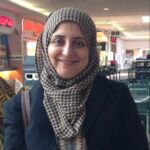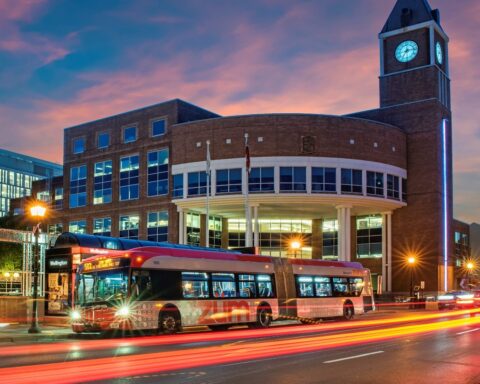In the weeks leading up to the Oct. 19 federal election, Rabia Khedr started to feel like she didn’t belong in Canada.
The executive director of the Canadian Association of Muslims with Disabilities says she, along with many other Muslim Canadians, felt targeted as extremist and socially backward.
“I have no other home,” says Khedr, who was born in Pakistan and came to Canada when she was four. “I cannot function anywhere else, with my kids half Pakistani and half Egyptian.”
Her family feared the Islamophobia they felt was brewing during the recent federal election. “It was a nightmare for us.”
This sentiment may have contributed to what Dr. Salha Jeizan, a professor who teaches online in the education department at Capella University in Minnesota, U.S. and mentors PhD students, calls a strategic vote on behalf of Muslims.
The Conservatives’ divide-and-rule approach of singling out Muslims to gain support from other religious communities backfired.
“People have voted strategically [knowing that] if I vote for NDP, I vote for Conservatives,” Jeizan explains. If enough votes had been split between the New Democratic Party (NDP) and Liberals, the election outcome could have been in favour of the Conservatives.
Malaz Sebai, who works for Lifeline Syria, an organization working to resettle 1,000 Syrians in the GTA, says he was happy to see true leadership in the form of Liberals has resumed.
“Strategically, yes – Muslims from different communities came out and voted,” he explains. “There were more than three different groups encouraging Muslims to vote; I guess that was the strategy.”
One of these groups was The Canadian-Muslim Vote, a non-partisan organization with the goal of encouraging civic engagement amongst the Muslim community.
Muneeza Sheikh, communications director for the organization, says that while the anti-Harper sentiment may have fuelled many Muslims to vote, it may not have been their sole motivation for heading to the polls.
“One can’t assume all of these issues are important to Muslim Canadians for the same reasons,” says Sheikh.
“On the niqab issue you may see increased voter turnout because Muslims are concerned about many of the same issues in relation to the niqab as non-Muslims – i.e. Charter rights, freedom of religion, minority rights, women’s rights, et cetera.”
Jeizan says fear of the Islamophobia created during the Harper era may have been a great motivator as well.
“It is our religious and civic duty to vote, because Islam demands us to stand up for what is right.”
“Actually, [Muslims] have realized that if we don’t come out and vote, something worse can happen, and where would that lead us?” says Jeizan, adding that the Conservatives’ divide-and-rule approach of singling out Muslims to gain support from other religious communities backfired.
“Harper’s calculations proved to be wrong.”
Political engagement increasing
Although the exact percentage of eligible Muslim Canadians who cast a ballot on Oct. 19 is not available yet, anecdotal evidence speaks to a higher level of engagement.
“My younger daughter voted, as she turned 18 last month, and my elder daughter has volunteered at a riding and told me that lots of hijabis came out to vote,” says Jeizan, who is originally from Yemen.
Highlighting the efforts of The Canadian-Muslim Vote, Sheikh says she is thankful to the hundreds of volunteers who helped to increase civic engagement in Muslim community.
“We engaged them in a great deal of door-to-door canvassing – it is important to connect on an individual level with Muslims in the community and to build relationships.”
Khedr says she believes things were changing even prior to the federal election. Earlier this year she ran in her Mississauga ward’s byelection and, though she lost, she doesn’t believe it was a failure.
“I stood at number five out of 26 candidates. It’s a step in the right direction and a proof that the stereotype is breaking,” she says, highlighting that Muslims’ involvement in politics is on the rise. “It is our religious and civic duty to vote, because Islam demands us to stand up for what is right.”
The community will be calling on the NDP to ensure accountability within the new government.
It is Jeizan’s hope that political engagement in the Muslim Canadian community only increases.
“The momentum should not stop even after election; it needs to continue for municipal, [for] provincial and, later again, for federal elections.”
Build in-roads with new government
As the new government gets settled into office, Muslim Canadians will be watching particularly for how it handles legislation like the Anti-Terrorism Act (Bill C-51) and Strengthening Canadian Citizenship Act (Bill C-24), both of which many community members opposed.
“Stripping of Canadian citizenship is unfair,” explains Jeizan. “Returning to their countries is impossible in many cases, as those countries don’t exist anymore, like Syria, Afghanistan and Palestine.”
“What is needed, rather, is to rehabilitate misguided young people,” she says, and a reframing of terrorism as not a Muslim faction.
During the campaign run, both the Liberals and the NDP promised to repeal C-24. The NDP said it would repeal C-51, while Trudeau and the Liberals only said it would be amended.
Jeizan says the community will be calling on the NDP to ensure accountability within the new government.
“NDP members will hold [them to] what they promised,” she says with optimism. “Laws can be reviewed, repealed or amended. It’s not written in stone.”
Khedr agrees. She says just because the Conservatives are not in leadership anymore doesn’t mean the work is done for the Muslim-Canadian community.
“We need to continue lobbying – clear and loud – against this fear [of Muslims],” she says. “Send messages to our leaders by building relationships with them.”
Journalist Priya Ramanujam mentored the writer of this article, through the New Canadian Media mentorship program.
Tazeen is based in Mississauga and is a reporter with the New Canadian Media. Back in Pakistan where she comes from, she was a senior producer and editorial head in reputable news channels. She holds a master’s degree in Media and Communication and a certificate in TV program production from Radio Netherlands Training Center. She is also the recipient of NCM's Top Story of 2022 award for her story a "A victim of torture, blogger continues fight for human rights in Pakistan"





